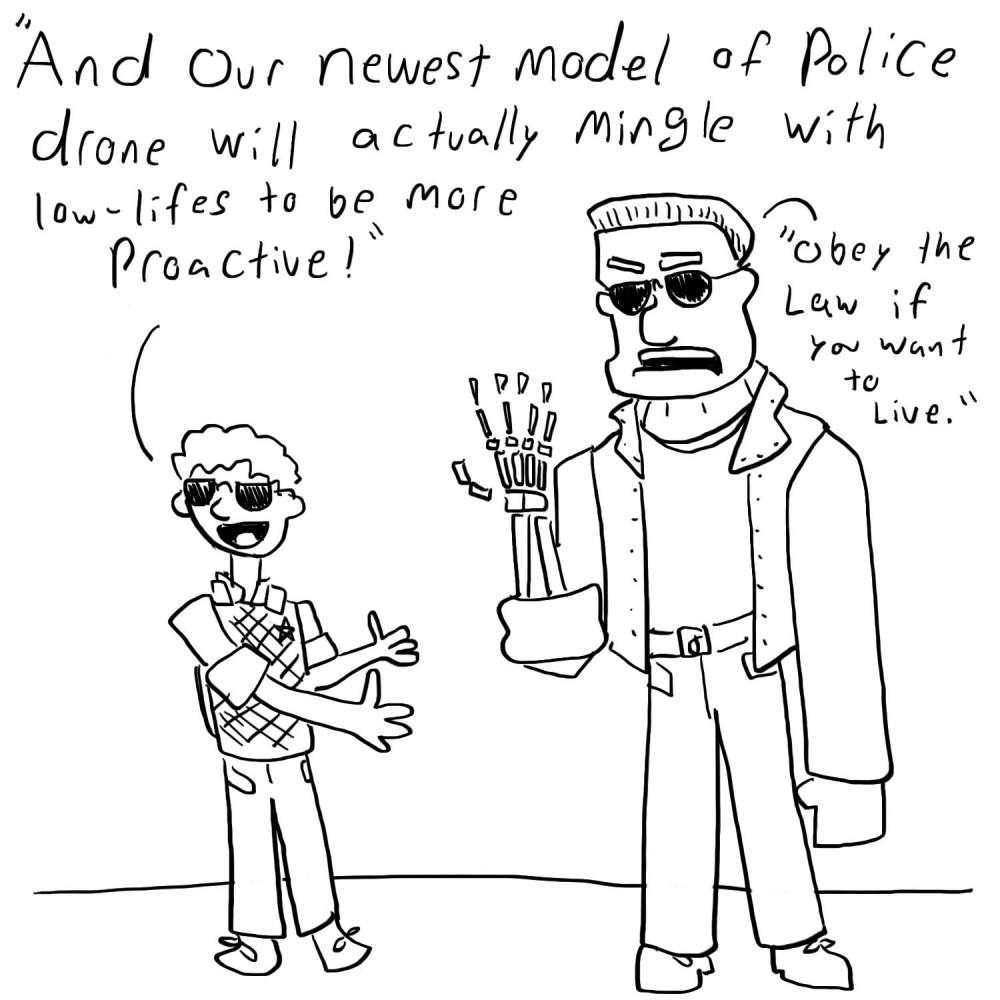We’re living in the age of information and automation, and many technological advancements have created ethical questions for which the answers are not easy. Cost-benefit analyses are tricky when dealing with changes for which comparable historical examples are not available.
Drones are an ethically questionable invention, and even more so in the hands of cops. Connecticut is currently trying to sort out those challenges as a bill that would authorize police usage of lethally armed drones passes through a round of initial consideration. The Editorial Board doesn’t believe that police need these deadly drones.
The Judiciary Committee of the state senate in Connecticut approved the bill with a 34-7 vote March 29, and the bill now awaits the scheduling of a debate and a vote in the House. The portion of the bill relating to law enforcement is actually an amendment to a law involving a ban on citizen use of weaponized drones, which the state government has been considering without resolution for two years.
The idea of police drones armed with lethal weapons make us think of Orwellian government oversight, and the Editorial Board certainly has issues with the significant potential for misuse of these drones. In light of that potential, our perspective on the proper incorporation of drones into law enforcement involves a few specifications that we feel prioritize citizens’ safety.
We think it’s important that officers would be required to obtain a warrant before using a drone, but we were concerned about the exception the bill allowed for emergency circumstances. While it might seem like an obvious benefit that drones could be used to keep officers safe when handling situations such as a shooter on campus, the Editorial Board is not convinced that drones would necessarily eliminate mistakes that could harm innocent people.
Such mistakes would make operator accountability an essential component of drone use. Storing the video collected while using drones would ensure that officers are kept responsible for the decisions they make with such deadly equipment. This provision should be kept whenever a drone program is considered.
Furthermore, the Editorial Board does not see the necessity of drone weapons being lethal. North Dakota, for example, passed a bill in 2015 allowing drones to be equipped with rubber bullets, stun guns and tear gas, and we feel that these measures ought to be sufficient for subduing criminals if used effectively.
Farmington, Connecticut, Police Department Chief Paul Melanson told CNN that “no one is looking for law enforcement to arm drones for offensive purposes,” and that their primary purpose will be to defuse bombs or disarm drones used by terrorists or other criminals. If that is indeed the extent of armed drone usage, we find this to be a reasonable strategy to avoid unnecessary harm to officers.
Ethical use of weaponized drones should value an increase in citizens’ safety over a decrease in risks taken by officers, which leads the Editorial Board to favor nonlethal weapons and to support the non-offensive approach promoted by supporters of the bill. The specifics of this bill, if it succeeds, could set a precedent for other states to follow in the future, and it’s important that we have our priorities straight.




